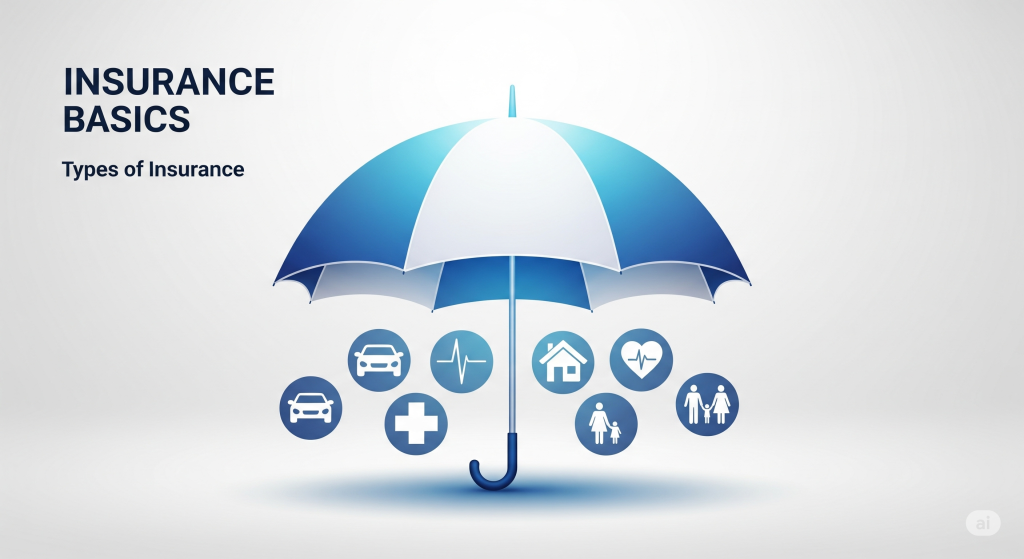Life is unpredictable, and unexpected events can disrupt your financial stability in an instant. That’s where insurance comes in. Understanding the basics of insurance is essential for protecting yourself, your family, and your assets. In this guide, we’ll cover what insurance is, the most common types of insurance you should consider, and why having the right coverage is a key part of a solid financial plan.
What Is Insurance?
At its core, insurance is a financial safety net. It’s a contract between you and an insurance provider, where you pay premiums in exchange for protection against specific risks. Whether it’s your home, car, health, or income, insurance helps reduce the financial burden when unexpected events occur—like accidents, illnesses, or natural disasters.
Why Is Insurance Important?
1. Protection from Financial Loss
Insurance provides peace of mind by shielding you from the full impact of unforeseen expenses. Without it, a single accident or emergency could lead to significant debt or financial hardship. Having coverage allows you to recover faster and focus on what matters most.
2. Compliance and Peace of Mind
Certain types of insurance, like auto or health insurance, are required by law in many places. Beyond legal requirements, insurance gives you the confidence that you’re prepared for life’s uncertainties—whether it’s a car accident, medical emergency, or damage to your property.
3. Safeguarding Loved Ones
Life insurance, for example, provides financial support to your family in the event of your passing, helping them cover expenses and maintain their standard of living.
Types of Insurance Everyone Should Consider
1. Health Insurance
Health insurance helps cover medical expenses, including doctor visits, hospital stays, prescriptions, and preventive care. It’s essential for managing the high costs of healthcare and ensuring you can access necessary treatments when needed.
2. Auto Insurance
If you drive, auto insurance is a must. It protects you financially in case of accidents, theft, or damage to your vehicle. Liability coverage, collision coverage, and comprehensive coverage are common components of an auto insurance policy.
3. Homeowners or Renters Insurance
Protect your home and belongings from damage or loss due to fire, theft, or natural disasters. Homeowners insurance is essential if you own a property, while renters insurance is crucial for those who lease apartments or houses.
4. Life Insurance
Life insurance provides financial security for your loved ones if you pass away. It can help cover funeral costs, debts, and provide ongoing support for dependents. Consider term life insurance for affordable coverage or whole life insurance for lifelong protection and cash value growth.
5. Disability Insurance
This coverage replaces a portion of your income if you become unable to work due to illness or injury. It helps maintain your financial stability during periods of disability.
How to Choose the Right Insurance
Assess Your Needs
Think about your lifestyle, family situation, and financial goals. Do you have dependents? Own a car or home? Travel frequently? Your answers will guide you in selecting the appropriate types and amounts of insurance coverage.
Compare Policies and Providers
Not all insurance policies are the same. Shop around, compare coverage options, read reviews, and consult professionals if needed. Look for reputable providers with strong customer support and a history of reliable claims processing.
Final Thoughts
Understanding the basics of insurance is a key step in protecting your financial future. By investing in the right types of insurance, you can safeguard your health, property, and loved ones from unexpected challenges. Remember, insurance isn’t just an expense—it’s an essential part of a smart, long-term financial plan that provides security and peace of mind for whatever life may bring.


